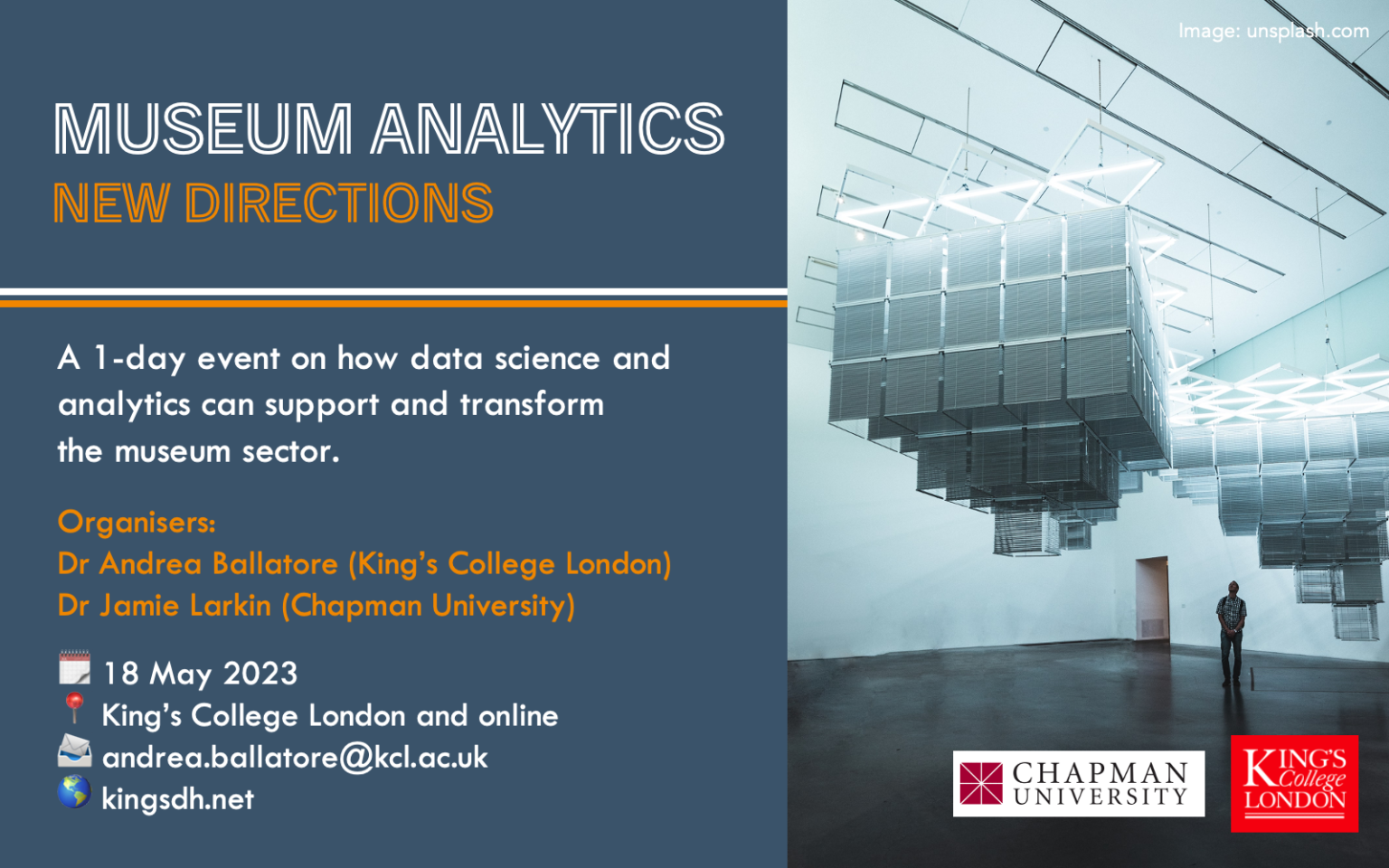Museum Analytics: New Directions
Data science has the capacity to revitalise our understanding of the museum sector, through reframing the history of museum development, charting museum geographies, and highlighting new data relationships in innovative and dynamic ways (e.g. Ballatore & Candlin, 2022). It can also illuminate broader relationships between museums, society, and the wider Creative and Cultural Industries (e.g. Me|Mind, 2021), to help produce more joined-up cultural policy and strategy (Centre for Cultural Value, 2022).
The application of data analytics presents growing opportunities for institutions and researchers across the cultural sector. While museums often use data to develop visitor profiles and drive income generation, there is tremendous scope to leverage data in ways that reimagine the cultural work of the museum and knowledge of the museum sector. Within museums, work has taken place to use data to enhance curatorial decision-making (Tate, 2016), to personalise collections databases (Noehrer et al., 2022), and to enrich and improve visitor experiences (e.g. Villaespesa & Murphy, 2021).
Stemming from the Mapping Museums project (http://www.mappingmuseums.org), this one-day conference seeks to draw together museum studies scholars, data scientists, cultural policymakers, and geographers to discuss and debate the role and scope of museum analytics and to frame the development of this area of research and practice.
Topics of interest include:
- Applications of data analytics in new areas of museum practice
- Innovative data collection methods in museums
- Social media analytics and user-generated content
- New methods for audience analytics and profiling
- Data-driven museum marketing
- Artificial intelligence (AI) and museums
- Ethical considerations surrounding data practices and datafication in museums
- Innovative data applications in digital museum contexts
- Museum analytics and cultural policy
- Data science to study collections
- Data vocabularies and linked data for museums
- Data infrastructures and capacity across the museum sector
- Quantitative geographies and histories of museums
- History of data science methods to study museums

